Horizon scanning with Dr. Fawaz Abu Sitta
“Think of something that’s impossible today which, if it happened, would change everything in the education system”
This was a key question presented by Dr Fawaz Abu Sitta during his lecture at the Faculty of Education last week, his first since being introduced as a visiting fellow to DEFI and Hughes Hall Cambridge earlier this month. Dr Abu Sitta has joined DEFI through the end of 2023 to conduct horizon scanning that will help DEFI to anticipate, understand and influence the emerging possibilities in education. In other words, to help us spot signals of change which may soon shift from the impossible to the possible.
Dr. Abu Sitta is a UNESCO Chair for anticipatory systems and Foresight Research Director at the Centre of Futures Studies. He holds many other posts in the UAE and around the world. He co-authored the first edition of the Dubai e-Government Model, which laid the foundation for the Dubai Government Digital Transformation.
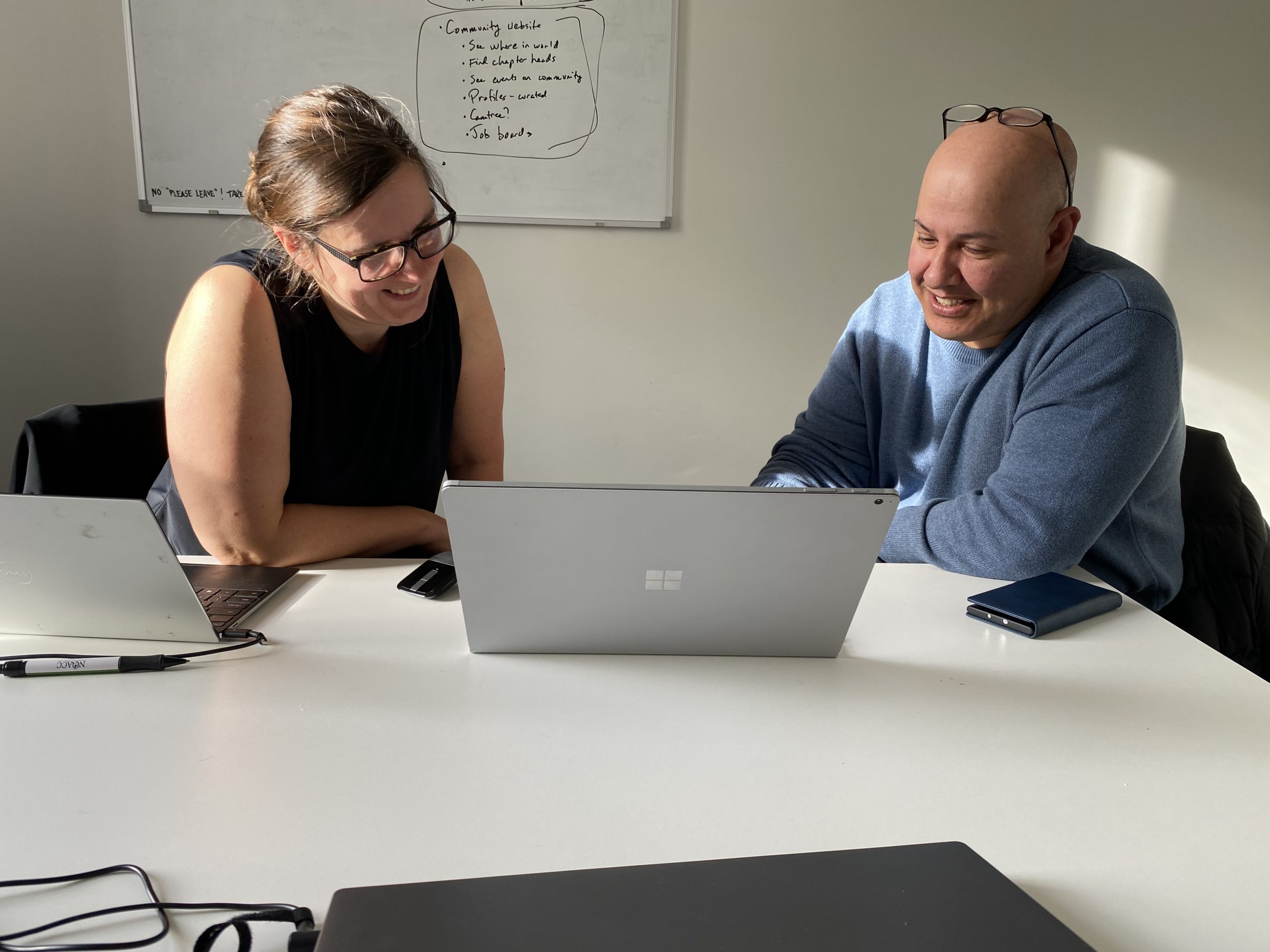
As shown in this photo, Dr Abu Sitta worked closely with Dr Imogen Casebourne, research lead at the DEFI Innovation Lab, during his visit to Cambridge. They continue to collaborate between Dr. Abu Sitta’s visits to take forward the aims of his visiting fellowship.
Foresight research to transform education
“I’ve come to Hughes Hall and DEFI to lay the foundation for a global network of futurists and organisations who will conduct foresight research and futures thinking that will help transform education in the next fifty to one-hundred years,” says Dr. Abu Sitta.
During his time with DEFI, Dr Abu Sitta will engage our community through exploration of several topics in online or in-person educational sessions:
- Futures of Education: Plausible Scenarios
- Futures Thinking: Principles and Methods
- Systems Thinking: Decoding the Futures
- Curiosity & Futures Thinking
- Futurists vs Strategist
- The Fusion of Futures Thinking and Innovation Management
- World Futures
- Science Fiction for Scientists
More from DEFI
Futures of Education: Plausible Scenarios
The first of these educational sessions was held at the Faculty of Education, University of Cambridge, on Thursday, 10 November. Dr Abu Sitta spoke to a broad audience of education PhD students, post-docs, professors, and others, to help them consider aspects related to the education sector, such as:
- Principles, methods and tools of futures thinking
- The power of imagination and creativity over knowledge and data when building images of the future
- The key changes that might shape the futures of the sector
- Plausible scenarios and preferred futures
Dr Abu Sitta led students through a discussion of 10 potential key drivers that might shape the futures of education, while training them to use the Axis of Uncertainty to map the plausibility of each scenario.
The Axis of Uncertainty
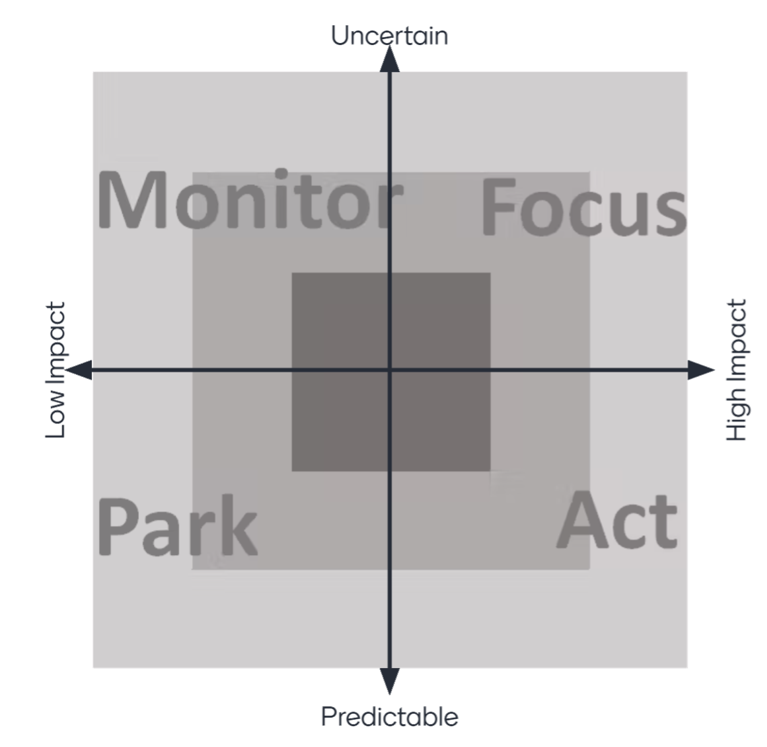
The Future of Higher Education 2050 Study
In March 2022, Dr Abu Sitta, along with his colleague, Dr Saeed Aldhaheri, presented findings from their study of higher education as part of the DEFI webinar, The Future of Learning, Holistic Approaches to Equitable Learning
Future signals that could impact education
For the Horizon Scanning project, Dr. Abu Sitta has identified several signals for investigation as to their potential impact on education:
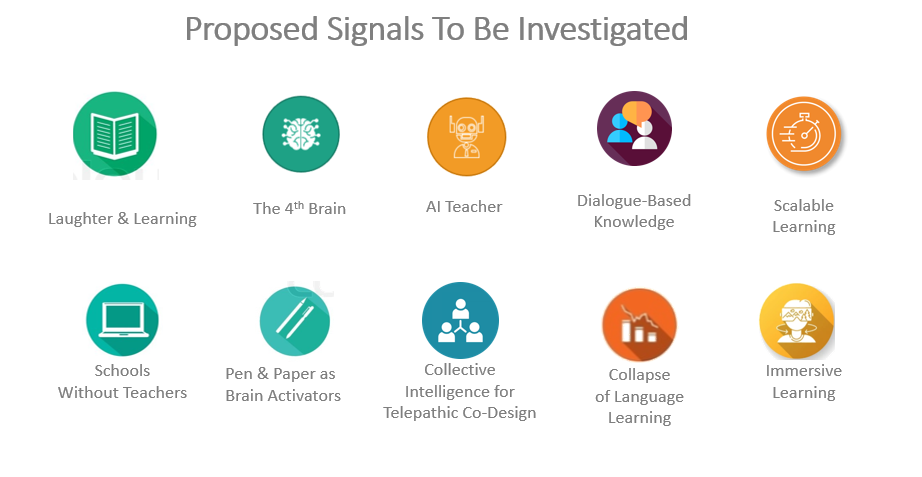
When Dr Abu Sitta discussed one of these signals, Collapse of Language Learning, in the Futures of Education workshop, he used a compelling video from Google in order to illustrate the possibility that technology could one day help reduce language barriers:
The workshop participants may not have been fully convinced by Google’s ambition however, while they agreed that this type of translation would be high impact, they were less sure that it was predictable when measured on the Axis of Uncertainty:
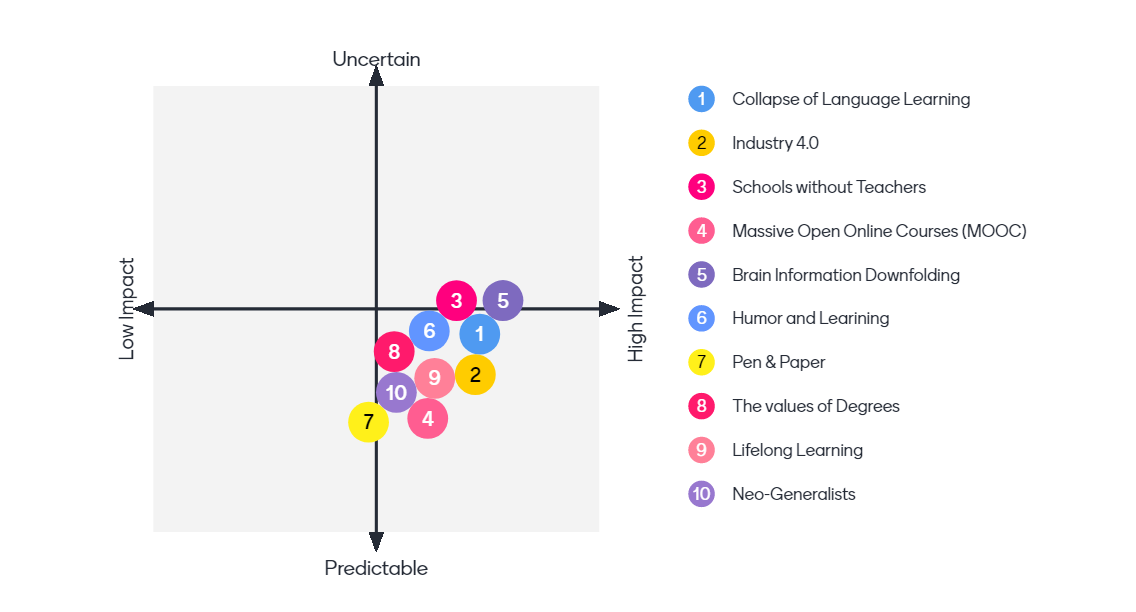
It is perhaps interesting that the workshop participants felt the two most predictable influences on the education systems would be MOOCs and Pen and Paper. While the former is certainly an affordance of digital technology, the latter shows that traditional technology may continue to influence learning and education well into the future.
Further workshops will be announced as Dr. Abu Sitta confirms his schedule in Cambridge for 2023. To keep up with Dr. Abu Sitta’s work at DEFI, sign-up to our mailing list and put Horizon Scanning in the message box.
Barry Fuchs
DEFI communications officer
 Barry manages online communications and events for DEFI. He experienced digital education through an online degree programme and has helped several organisations to create and improve their digital education offer.
Barry manages online communications and events for DEFI. He experienced digital education through an online degree programme and has helped several organisations to create and improve their digital education offer.

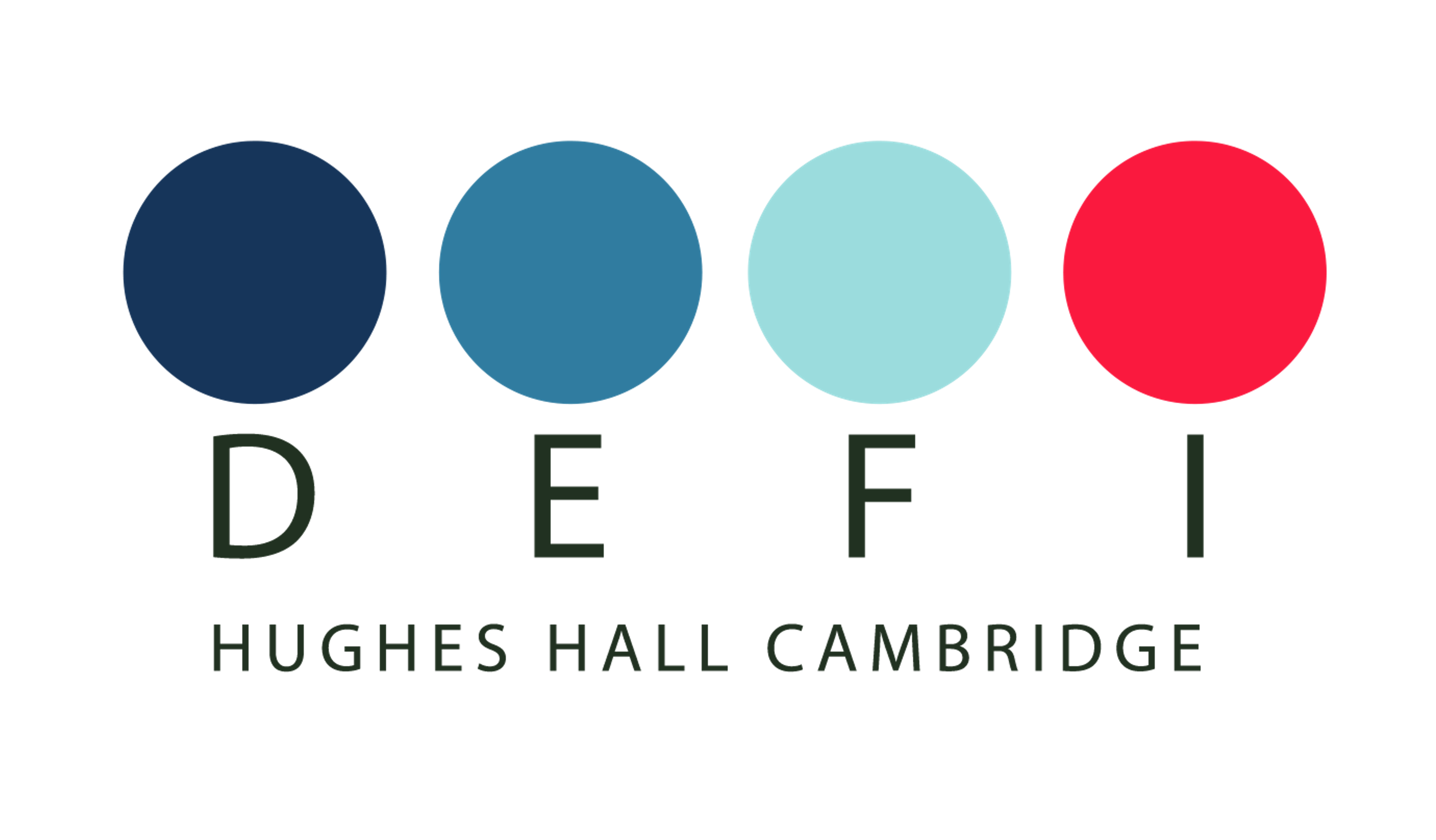

0 Comments